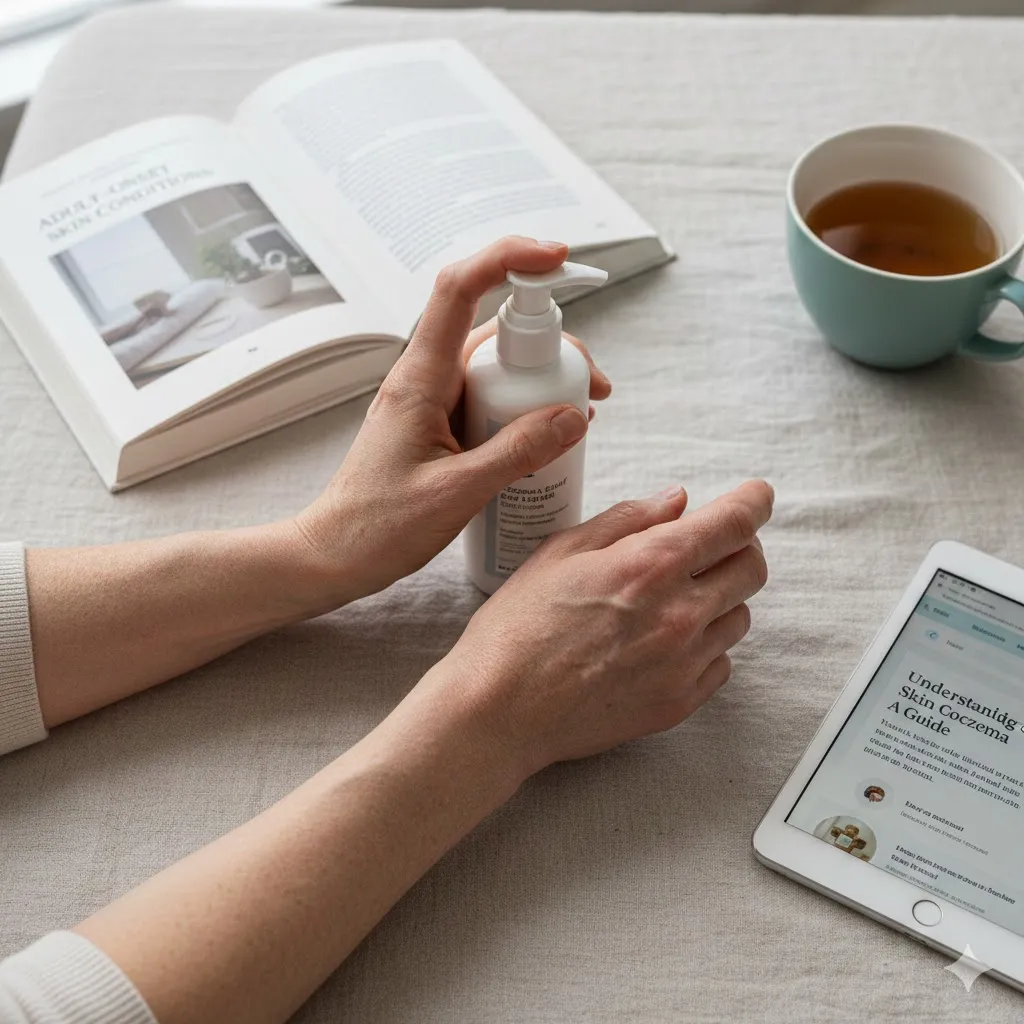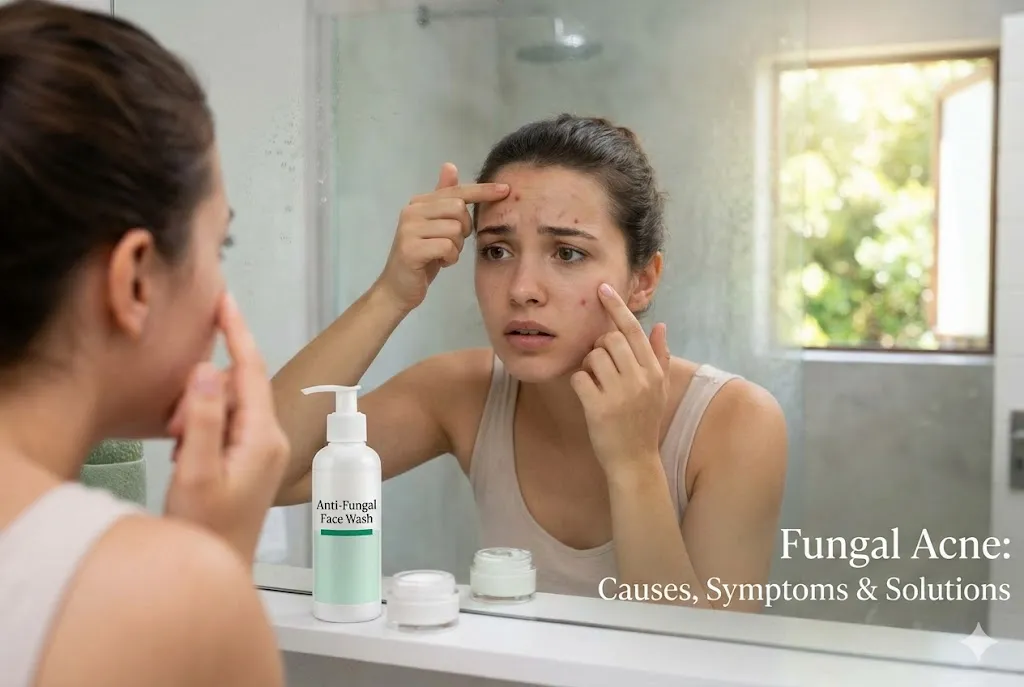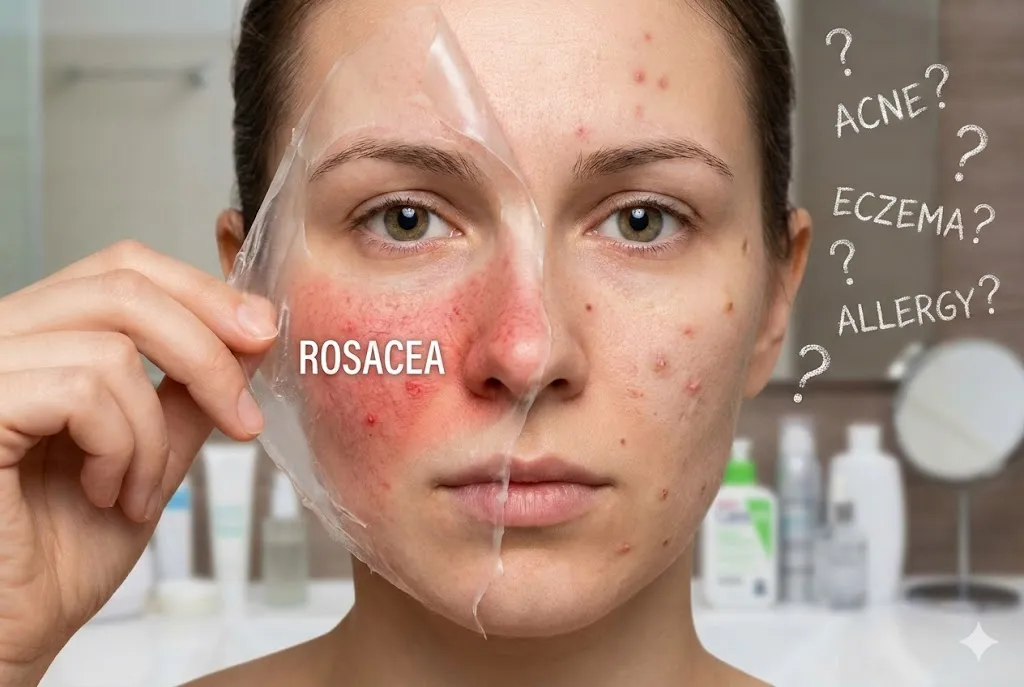Looking to quickly get relief from inflamed, irritated, or itchy skin? Triamcinolone Acetonide Cream (Aristocort A) may be what you need. This potent prescription steroid cream works under your skin’s surface and treats redness, swelling, allergic reactions, and discomfort caused by conditions such as psoriasis, dermatitis, and eczema. This blog will help you know its right uses, benefits, directions to use, side effects, and many related facts! Let's explore!
What is Triamcinolone Acetonide Cream?
Triamcinolone cream or Aristocort A and Kenalog Cream is a synthetic glucocorticosteroid that helps treat different skin conditions causing itching, redness, and inflammation. It works by blocking the substances responsible for causing inflammation and itching. This topical corticosteroid cream is only available with the prescription of a dermatologist. It comes in different strengths like 0.025%, 0.1%, and 0.5% topical cream.
Uses of Triamcinolone Acetonide Cream
This topical corticosteroid cream can be used to treat the following skin conditions:
-
Eczema
-
Dermatitis
-
Rashes
-
Allergic reactions
It helps reduce swelling, redness, and itching associated with these skin conditions.
Important Notes:
-
This topical corticosteroid cream is for external use only, so don't take it orally (by mouth).
-
Avoid using over large skin areas as it can lead to high absorption risk, causing side effects such as stretch marks, skin thinning, spider veins, skin lightening, and adrenal gland problems.
-
For children, you should be more careful as the side effects will have more impact on their soft skin. Thus, follow the prescriptions very closely.
How to Use Triamcinolone Acetonide Cream?
To use triamcinolone acetonide:
-
Wash your hands: With soap and water, wash your hands before as well as after using this medicine.
-
Clean the affected area: Properly clean and dry the affected skin area.
-
Apply the medicine: Take a thin layer or amount and apply it to the affected area as prescribed.
-
Rub it gently: Rub the medicine gently and then wash your hands.
-
Avoid covering: Don't use any bandage or any covering on the treated area unless a doctor instructs you.
Important Considerations:
-
Don't use the dose more than prescribed or for a longer period than recommended to avoid the risk of side effects.
-
It should be used on the skin only. Don't use it for skin infections, cuts, burns, or scrapes, and avoid getting it into the eyes. If it gets into these areas, wash it immediately with water.
-
Avoid using this medicine on your face, underarms, or groin unless recommended by your dermatologist. This is because it can cause irritation, stretch marks, and skin thinning in these sensitive areas.
-
If using the spray, cover your nose to avoid inhaling it and ensure your eyes are also protected.
-
If the cream is applied to the diaper area of your child, avoid making them wear plastic pants or tight-fitting diapers unless a doctor advises you.
Benefits of Triamcinolone Acetonide Topical Cream
Here are the benefits of Triamcinolone Acetonide Cream:
-
Reduces inflammation associated with several skin conditions.
-
Prevents irritation and itching quickly.
-
Relieves swelling and redness for smoother skin.
-
Improves the appearance and comfort of the affected skin areas.
-
Easily applied and absorbed, making it an effective solution for skin issues.
Dosing Information
Here's the dosage based on strength, according to the :
|
Strength |
Adults |
|
0.025% |
2 to 4 times per day |
|
0.1% and 0.5% |
2 to 3 times per day |
Pediatric Use:
Use the medicine with caution, as children are more prone to the risk of Cushing's syndrome and HPA axis suppression due to the larger ratio of skin surface to body weight. HPA axis suppression can cause slow growth, low plasma cortisol levels, and delayed weight gain. So, always consult a doctor for safe and effective use of the medicine.
Overdose and Missed Dose Case:
-
Missed Dose: Take the dose instantly when you remember. But, if it's time to take another dose, do not take the missed dose. Avoid double-dosing to prevent side effects.
-
Overdose: In case you or someone around used an excessive dose, seek emergency help by calling 911 or contacting 800-222-1222 (a Poison Control center).
Precautions to Take While Using Triamcinolone Acetonide Topical Cream
Take these precautions when using this medication to avoid any risks or complications:
-
Allergic to ingredients: Avoid using the medicine if you have allergies to any of its ingredients, and discuss it with your doctor too.
-
Don't use unless prescribed: Use it only when a doctor prescribes it due to its potential to cause side effects and systemic effects when used incorrectly.
-
Avoid sharing with others: Do not give it to others, even if they have a similar skin issue. This may harm them as their condition might need a different solution.
-
Avoid contact with open wounds and eyes: This may result in the worsening of existing issues or lead to unwanted side effects.
-
Discuss your skin issues: Share your skin problems, such as cuts, infections, dry skin, or sunburn, with your dermatologist to avoid the risks of worsening these conditions.
-
Be cautious during pregnancy and breastfeeding: It's not known whether this medicine affects pregnancy or harms the growing child and breast milk. So, always discuss with your gynecologist, who can guide you correctly.
-
Tell about your other medical issues: Other health issues may impact the effectiveness of this medicine, so speak about them if you have any, especially diabetes, skin infections, Cushing's syndrome, large sores, severe skin injury, broken skin, etc.
-
Discuss your medicines and supplements: Tell about your current over-the-counter and prescription medications, herbal products, or any supplements, as interaction can reduce the effectiveness of triamcinolone acetonide cream and increase side effect risks.
-
Stay away from heat or smoke: When using triamcinolone topical spray, make sure to keep yourself out of the reach of open flames, smoking, and excess heat, as the spray can catch fire.
Note: If you experience side effects or your skin issues do not resolve after 2 weeks, contact your doctor.
Drug Interaction of Triamcinolone Acetonide
Triamcinolone Acetonide Cream can interact with other drugs, which can affect its effectiveness and increase the risk of severe side effects. Those drugs can include:
-
Other topical corticosteroid medications
-
Aspirin
-
Nonsteroidal anti-inflammatory drugs like ibuprofen and naproxen
-
Chemotherapy agents
-
Blood thinners such as Warfarin
-
Antibiotics like Macrolides
-
Cholesterol-lowering medicines like Cholestyramine
-
Immunosuppressants such as Cyclosporine
Potential Side Effects of Triamcinolone Topical Cream
Triamcinolone acetonide cream side effects can be mild or severe.
Common Side Effects:
-
Burning sensation
-
Itching
-
Swelling
-
Redness and dryness
-
Acne
-
Pale skin
-
Thin skin
-
Rashes
-
Stretch marks
-
Tiny white bumps on the skin
If any symptoms bother you, report them to your doctor.
Severe Side Effects:
1. Severe Allergic Reactions with symptoms like:
-
Racing heart
-
Breathing issues
-
Skin rashes
-
Swelling in the face, mouth, and throat
-
Swollen lymph nodes
-
Trouble swallowing
2. Local Skin Reactions, causing symptoms such as:
Painful skin irritation
Bleeding, redness, irritation, sores, blisters, and swelling in the applied area.
3. Reduced Adrenal Function (adrenal glands not producing enough hormones) due to prolonged use, leading to symptoms:
-
Nausea
-
Vomiting
-
Low blood pressure
-
Weakness and tiredness
4. Cushing’s Syndrome, which is marked by high levels of cortisol. Research reports that it occurs due to large doses (38 g) of triamcinolone acetonide (0.1%). Its potential symptoms are:
-
Rounded, rosy face color
-
Feeling extremely tired or weak
-
Weight gain
-
High blood sugar levels
-
Fat accumulation on the base of the neck or in the upper back
-
Skin that bruises easily
-
High blood pressure
-
Sleeping issues
5. High Blood Sugar Levels
-
A study reports that triamcinolone can raise blood sugar levels, especially in diabetic people.
-
This happens as this medicine interrupts the action and reduces the secretion of insulin, which increases gluconeogenesis and blocks peripheral glucose uptake.
If you experience any of these severe side effects, seek emergency help. You can also contact the FDA by calling 800-FDA-1088 or reporting the symptoms at www.fda.gov/medwatch.
Storage And Disposal Tips
-
Store the medicine at room temperature in a closed container, away from heat, sunlight, and moisture.
-
Keep out of the reach of your pets and children.
-
Do not freeze it.
-
Avoid keeping it in your car as there are more chances of extreme exposure to cold or heat.
-
Discard it properly when it's no longer needed or has expired.
-
Don't flush the medicine down the toilet or pour it down the drain unless directed.
-
Avoid making holes in a bottle or throwing it into a fire when empty, as they can release toxic fumes from residual materials.
Summing Up
Triamcinolone acetonide cream is used for treating many skin conditions like eczema, psoriasis, and dermatitis by reducing symptoms associated with them, such as swelling, redness, and itching. Though it is an effective cream, note its side effects and precautions. While using it, keep a list of the precautions and side effects. If you notice any symptoms that last longer or bother you, contact the doctor immediately, especially in case of severe symptoms.
Frequently Asked Questions
What are the benefits of using triamcinolone Topical?
This medication can help treat conditions like eczema, dermatitis, itching, and redness or swelling.
How many times can this cream be applied to the skin?
Triamcinolone cream can be applied up to two times per day.
How many days can one use Triamcinolone acetonide cream?
The medical can typically take a day or two weeks to show the effects on the affected area.
Can one use Triamcinolone acetonide cream for damaged skin?
There can be side effects to using Triamcinolone acetonide cream on damaged skin.
Is Triamcinolone acetonide cream terrible for the skin?
No, this cream is best for treating conditions like eczema, dermatitis, allergies, or rashes.
Does triamcinolone interact with foods or drinks?
No such interactions are reported. But, limit the consumption of grapefruit and its juice as it can raise the chances of Triamcinolone's side effects.
Can you buy triamcinolone over the counter?
Yes, you buy Triamcinolone acetonide nasal spray like Nasacort over-the-counter. But other forms are available only with a prescription.

Reviewed by







